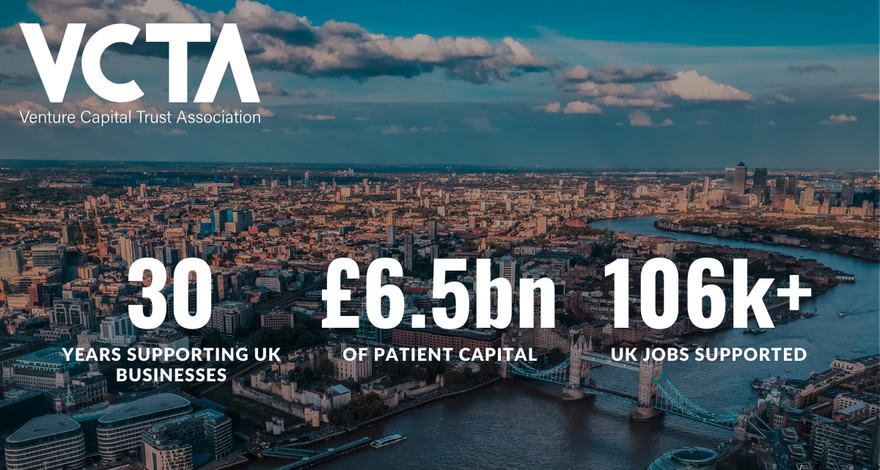Stuart Veale, Managing Partner of Beringea UK, shares his perspectives on the 30th anniversary of the VCT scheme
Thirty years ago today, the world of business, technology and entrepreneurship was about to be transformed. In the US, Marc Andreessen, the co-founder of Netscape Communications, was preparing the launch of Netscape Navigator, which would quickly become the dominant web browser for the fledgling internet, thanks to its user-friendly interface and advanced features. Navigator became the platform for the launch of countless new businesses, and one of the key enablers of the dot.com boom. Andreessen, of course, went on to be a leading venture capitalist, co-founding Andreessen Horowitz, now one of the largest VC funds in the world.
At the same time, on this side of the Atlantic, a less likely revolutionary was about to announce a seminal development in funding for the UK’s entrepreneurial ecosystem, which over the next thirty years would also stimulate the scale-up of thousands of early-stage businesses. The 29th November 1994 saw the announcement by the then Chancellor of the Exchequer, Ken Clarke, of the Venture Capital Trust (VCT) scheme, and the related Enterprise Investment Scheme (EIS).
As someone who has been involved in the management of VCT funds for more than 20 years, I thought that today might be an appropriate date on which to reflect on the crucial contribution that VCTs have made to supporting the growth of entrepreneurial UK businesses over the last 30 years, and as a result, to the UK economy.
VCTs: A quick primer…
To summarise, VCTs are venture capital funds designed to channel private investment into high-growth, economically productive, early-stage companies across the UK. They do this through providing targeted tax reliefs for investors to compensate them for the risks of backing earlier-stage businesses.
Crucially, investors accessing these tax reliefs must also hold their investments for at least five years or they will lose the relief. This creates a pool of patient capital that is so often highlighted as a gap in the venture capital ecosystem in the UK.
As well as providing patient capital, VCT managers support the companies they back with the strategic guidance and hands-on support that is so vital to businesses in the early stages of their scale-up journey.
From their small beginnings in 1994, VCTs now manage total venture capital funds of more than £6.5bn and support more than 100,000 jobs nationwide. Each year they provide more than £500m of funding to early-stage, high-potential businesses across the UK that may otherwise struggle to access funding, with VCT managers operating out of offices in more than 15 towns and cities around the country.
A few highlights from the past 30 years
Beringea, the VC firm of which I have been Managing Partner for the last 20 years, launched its VCTs – ProVen VCT and ProVen Growth and Income VCT – just a few years after Ken Clarke’s announcement.
One of the first companies backed by our VCTs was Mergermarket, the provider of intelligence and data to investment banks and fund managers, supporting what was then a small business with capital to increase the range of products offered and to expand into the USA. Five years later, Mergermarket was acquired by the Financial Times, and in subsequent transactions went on to be valued at over $1bn.
As an example of the flywheel effect initiated by VCTs, several of the founders of Mergermarket became angel investors in early-stage businesses, including another highly successful provider of intelligence for investors, ThirdBridge, which was also supported by the ProVen VCTs.
There are many other examples of great UK success stories which were supported on their scale-up journey by VCTs. Two examples are businesses which recently achieved “unicorn” status, Manchester-based Matillion, and Quantexa, which both enable businesses to make better use of their data. These businesses were backed by the British Smaller Companies VCTs and the Albion VCTs respectively.
The next ten years and beyond…
Having proven its value to the UK economy over the last 30 years, the Government has recently extended the life of the VCT scheme for another 10 years, through the extension of the so-called “Sunset Clause”.
And, in further testament to the Government’s ongoing support for VCTs, Rachel Reeves used her maiden Budget speech to recognise their importance to the UK’s entrepreneurial ecosystem. At a time when the Government is focused on kickstarting growth throughout the country, VCTs will be integral to this mission.
The Chancellor’s speech and the policies that it delivered highlighted the challenges that the UK faces today. In this context, the country needs proven levers for growth – and the VCT scheme is certainly one of them.
When Marc Andreessen launched Netscape back in 1994, he probably had no idea that it would be the first step on his journey to becoming the one of the world’s most influential venture capital investors. And similarly, Ken Clarke probably had no idea that the VCT and EIS schemes would be key drivers of the massive explosion of entrepreneurial activity in the UK which followed. Nevertheless, VCTs have made a huge contribution to the UK economy over the last 30 years, and they will continue to be at the forefront of investing in our future economic success.



